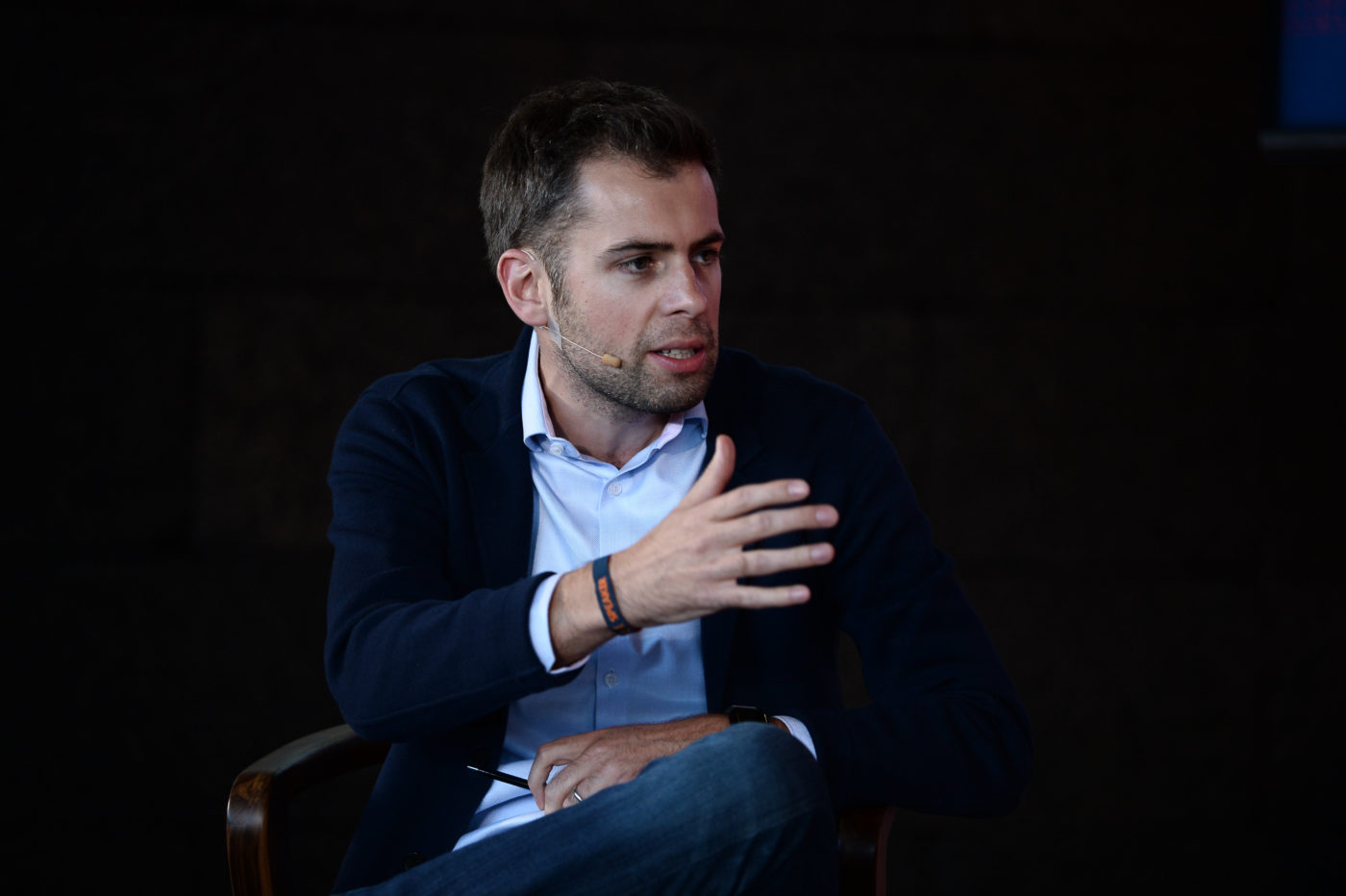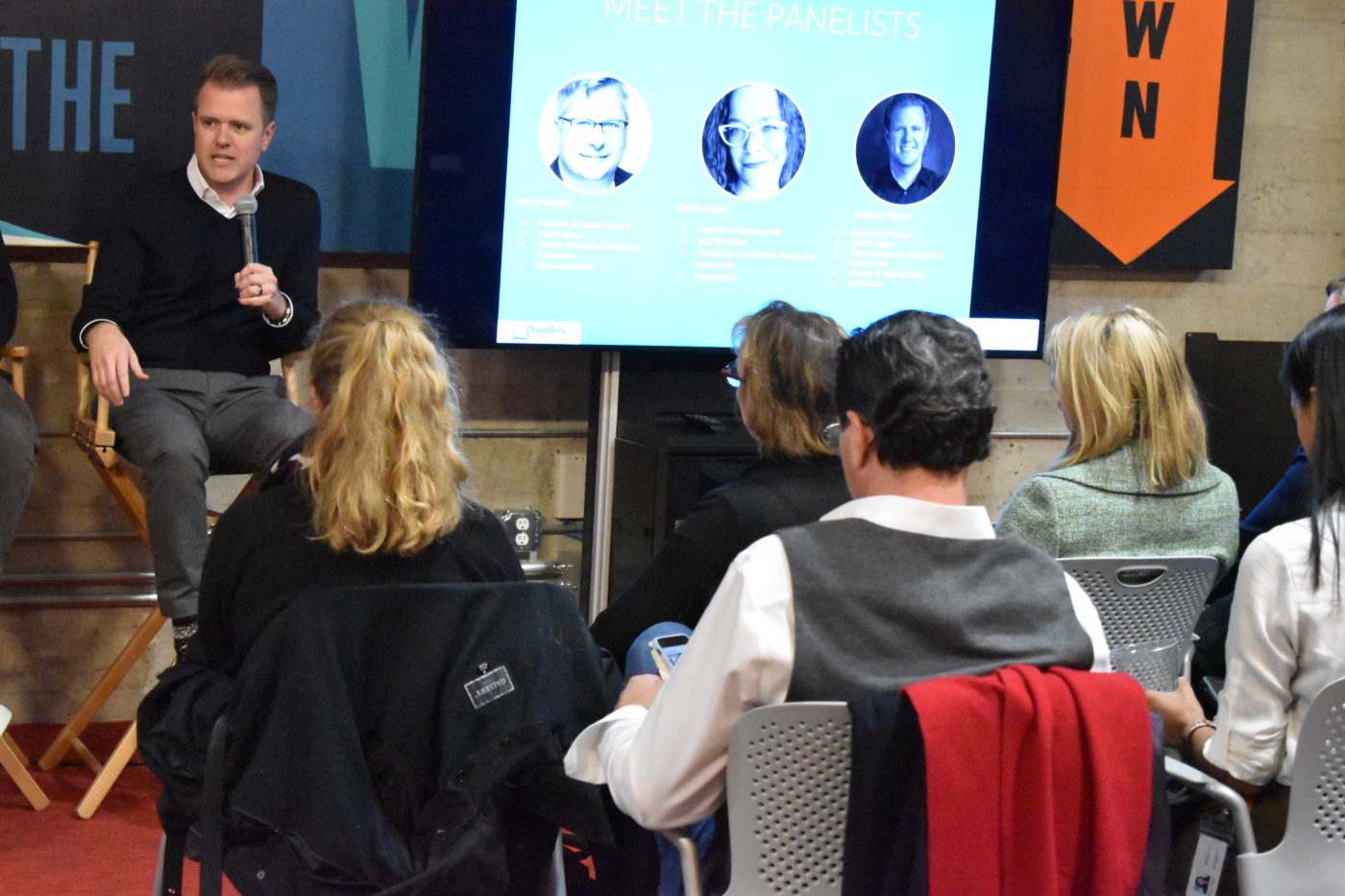
Hanrahan discusses the pitfalls that startups face in hiring for leadership roles, and what he wishes he’d known earlier as a founder. Handy raised $110 million and was acquired by ANGI Homeservices, a $4 billion company, last year.
Plenty of executives hail the importance of a strong culture, but it takes firsthand experience building a startup from scratch to understand how culture permeates everything from hiring to decision-making.
Oisin Hanrahan saw this up close in co-founding and scaling Handy, a marketplace for home cleaners, repairmen, and other household services. Within a few short years, Handy raised $110 million and gained widespread recognition as a consumer brand. In using Handy, customers can hire household services at the click of a button, and professionals have a new place to connect with clients.
Hanrahan, along with co-founder and then-roommate Umang Dua, began working on Handy while being a student at Harvard Business School. But the idea wasn’t an immediate hit among investors. They needed to work on development and networking opportunities. When they set out to raise money in 2012, the notion of a marketplace for household services was met with a good deal of skepticism.
“When we first raised capital, the number one pushback we got was: I don’t think people are going to go online and book services at the touch of a button and trust someone going to their home,” Hanrahan recalls.
Those doubts were ultimately proven unfounded. Determined that Handy would be a success, Hanrahan dropped out of Harvard Business School to dedicate himself full-time to building the platform. He wasn’t a first-time entrepreneur — he started his first company, Clearwater Group, a real estate development firm at 19 — and he saw a major shift in consumer behavior underway.
Handy was part of a wave of online marketplaces: Uber, Airbnb, and others were also gaining steam during that time. That wound up remaking the way consumers hire services, whether it’s booking a car or a plumber. @oisinhanrahan
Handy was acquired by IAC-owned ANGI Homeservices, a $4 billion company, in October 2018. Hanrahan recently assumed the role of Chief Product Officer at ANGI, where he’s tasked with transforming the company’s 12 brands, which do $1.1 billion in annual revenue.
The startup journey
“If you do this right, you’ll take a journey that should take 15 or 20 years. If you’re running a venture-backed company and a trusted network, you’re going to compress that whole journey down to 5, 6, 7, maybe 8 years”, Hanrahan says. “And if you do all the unexpected things that would normally happen over 10 or 15 years, it’ll happen in 5 or 7 years.”
So you’ve got to almost expect the unexpected and be okay with it, because it’s normal if you’re operating at a really fast pace.
“You’ve got to almost expect the unexpected and be okay with it, because it’s normal if you’re operating at a really fast pace.” @oisinhanrahan
If it’s typical to operate at lightning speed as a startup founder, then it’s critical to establish a culture that can meet those demands early on. It’s common for startups to encounter difficulties in hiring for the C-suite, even having handy a C suite network, however. Some level of trial and error is inevitable, and Handy was no different.
“When we first went out looking to bring on more seasoned executives onto the leadership team, it was a challenge for us; we weren’t quite sure what the fit profile was and weren’t quite sure what we were looking for,” Hanrahan says.
Which criteria to use when hiring executive roles?
According to thought leaders, like Oisin, you need to establish a consistent set of criteria that applies across the whole organization, whether you’re hiring at the executive level or for other roles.
In Handy’s case, Hanrahan and the suite leaders sought out people who are smart and hardworking: they are no-brainers for any company seeking to hire, but who were also open to compromise and collaborative thinking in determining the best path forward.
“We’re looking for people who are incredibly analytical, who work smart, who work hard, and we’re looking for people who want to win, and who appreciate that what we’re doing helps customers and helps professionals,” he said. “Lastly, which is particularly important on the leadership team: We’re looking for people who are not super wedded to their own idea as being the best idea.”
“Building any company can take years, but startup founders must balance long-term goals with shorter-term thinking that complements the pace at which the startup operates,” Hanrahan adds.
“I think one of the mistakes that early founders make is falling into the trap of: Oh my goodness, what do I need two years, three years, five years out?” he says.
A better approach, particularly for executive-level hires, tasked with executing the startup’s vision. It is determining at the outset what the person “needs to do in the first 90 days and in the first 12 months to be incredibly successful in their role,” according to Hanrahan.
If a hire isn’t successful in the first three months to a year, it’s unlikely that they will succeed over a span of years, Hanrahan added.
By nature, fast-growing startups can’t tolerate candidates who will flounder for a year or more before finding their way. And founders must consider what’s a reasonable time frame for a hire to “scale” into the role. That may vary a bit, depending on what stage a startup is in, but successful startup founders will hire with the awareness that it’s a totally different cadence than a larger, more established organization.
“Say you hire someone who’s been with their organization for 10, 15, or 20 years, and they’re a seasoned executive at a Fortune 500 company. The timeline to be successful in an organization like that is much longer than the timeline to be successful in a Seed Stage or a Series A startup,” business leader Hanrahan points out. “It’s an important cultural gap that you need to reconcile before you go down the path of hiring somebody.”
Some advice from Hanrahan to founders
Asked what he would tell his earlier self racing to build and scale Handy, Oisin Hanrahan pointed out that it’s important as a founder to trust your instincts. On top of that, work tirelessly to test the hypotheses and beliefs that sparked the idea in the first place.
“You’ve got to figure out what you believe to be true, and spend all of your time dedicated to proving or disproving it,” he says. “Ours was that idea of people would book home services online— just write it down and spend as much time as possible trying to prove, or disprove, that concept.”






